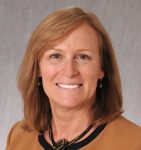 As with other trainees around the nation, our Institute for Biomedical Science (IBS) PhD students and postdocs have seen their research progress “paused” in light of the pandemic, but they’ve still been very busy. Our senior students have continued their research remotely, pursuing data analysis, figures and manuscripts, mini-reviews, journal clubs, lab and special interest group meetings, and maybe an added virtual happy hour or two. We have also encouraged our second-year students, once their classes are done, to prepare and defend their grant-style qualifier exams so they are prepared for their dissertation work once we return.
As with other trainees around the nation, our Institute for Biomedical Science (IBS) PhD students and postdocs have seen their research progress “paused” in light of the pandemic, but they’ve still been very busy. Our senior students have continued their research remotely, pursuing data analysis, figures and manuscripts, mini-reviews, journal clubs, lab and special interest group meetings, and maybe an added virtual happy hour or two. We have also encouraged our second-year students, once their classes are done, to prepare and defend their grant-style qualifier exams so they are prepared for their dissertation work once we return.
But what about our newest researchers, the first year PhD students who are testing out programs, and don’t yet have a lab “home?” This morning we heard from first year IBS students who reported back on their rotation extension projects, and what they did with several added weeks after we shut down labs. I was really impressed with their continued energy as they proposed new avenues for research, wrote short reviews, completed secondary analyses, and, in several cases, even contributed as authors to research publications!
We also invited the students to share their experiences with research-related online courses available nationally and curated by their graduate program directors, and learned that this was also worthwhile. Students took courses in Neuroscience and Neuroimaging, Lessons from Ebola: Preventing the Next Pandemic, Classical Papers in Molecular Biology, as well as biostatistics with R and Quantitative Methods for Biology, and a popular course in Using Python for Research, and they gave brief reviews applying their courses to their research interests. Several students said they were glad to have time to work on these topics, and I’m planning to share top-rated courses with more students.
These formal courses join the many newly added-workshops on wellness and stress management and biomedical career development that are offered at GW, the NIH, and research institutions around the country and world that help to build new skills and reduce our isolation during these trying times. I want to thank the research community for looking out for each other and continuing the indomitable spirit of inquiry.

